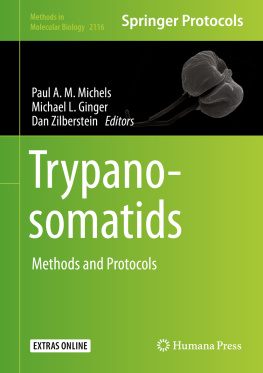Volume 159
Neuromethods
Series Editor
Wolfgang Walz
University of Saskatchewan, Saskatoon, SK, Canada
For further volumes: http://www.springer.com/series/7657 Neuromethods publishes cutting-edge methods and protocols in all areas of neuroscience as well as translational neurological and mental research. Each volume in the series offers tested laboratory protocols, step-by-step methods for reproducible lab experiments and addresses methodological controversies and pitfalls in order to aid neuroscientists in experimentation. Neuromethods focuses on traditional and emerging topics with wide-ranging implications to brain function, such as electrophysiology, neuroimaging, behavioral analysis, genomics, neurodegeneration, translational research and clinical trials. Neuromethods provides investigators and trainees with highly useful compendiums of key strategies and approaches for successful research in animal and human brain function including translational bench to bedside approaches to mental and neurological diseases.
Neuromethods publishes cutting-edge methods and protocols in all areas of neuroscience as well as translational neurological and mental research. Each volume in the series offers tested laboratory protocols, step-by-step methods for reproducible lab experiments and addresses methodological controversies and pitfalls in order to aid neuroscientists in experimentation. Neuromethods focuses on traditional and emerging topics with wide-ranging implications to brain function, such as electrophysiology, neuroimaging, behavioral analysis, genomics, neurodegeneration, translational research and clinical trials. Neuromethods provides investigators and trainees with highly useful compendiums of key strategies and approaches for successful research in animal and human brain function including translational bench to bedside approaches to mental and neurological diseases.
Metabolomics
1st ed. 2021
Editor
Paul L. Wood
Metabolomics Unit, College of Veterinary Medicine, Lincoln Memorial University, Harrogate, TN, USA
ISSN 0893-2336 e-ISSN 1940-6045
Neuromethods
ISBN 978-1-0716-0863-0 e-ISBN 978-1-0716-0864-7
https://doi.org/10.1007/978-1-0716-0864-7
Springer Science+Business Media, LLC, part of Springer Nature 2021
This work is subject to copyright. All rights are reserved by the Publisher, whether the whole or part of the material is concerned, specifically the rights of translation, reprinting, reuse of illustrations, recitation, broadcasting, reproduction on microfilms or in any other physical way, and transmission or information storage and retrieval, electronic adaptation, computer software, or by similar or dissimilar methodology now known or hereafter developed.
The use of general descriptive names, registered names, trademarks, service marks, etc. in this publication does not imply, even in the absence of a specific statement, that such names are exempt from the relevant protective laws and regulations and therefore free for general use.
The publisher, the authors and the editors are safe to assume that the advice and information in this book are believed to be true and accurate at the date of publication. Neither the publisher nor the authors or the editors give a warranty, expressed or implied, with respect to the material contained herein or for any errors or omissions that may have been made. The publisher remains neutral with regard to jurisdictional claims in published maps and institutional affiliations.
This Humana imprint is published by the registered company Springer Science+Business Media, LLC, part of Springer Nature.
The registered company address is: 1 New York Plaza, New York, NY 10004, U.S.A.
Preface to the Series
Experimental life sciences have two basic foundations: concepts and tools. The Neuromethods series focuses on the tools and techniques unique to the investigation of the nervous system and excitable cells. It will not, however, shortchange the concept side of things as care has been taken to integrate these tools within the context of the concepts and questions under investigation. In this way, the series is unique in that it not only collects protocols but also includes theoretical background information and critiques which led to the methods and their development. Thus it gives the reader a better understanding of the origin of the techniques and their potential future development. The Neuromethods publishing program strikes a balance between recent and exciting developments like those concerning new animal models of disease, imaging, in vivo methods, and more established techniques, including, for example, immunocytochemistry and electrophysiological technologies. New trainees in neurosciences still need a sound footing in these older methods in order to apply a critical approach to their results.
Under the guidance of its founders, Alan Boulton and Glen Baker, the Neuromethods series has been a success since its first volume published through Humana Press in 1985. The series continues to flourish through many changes over the years. It is now published under the umbrella of Springer Protocols. While methods involving brain research have changed a lot since the series started, the publishing environment and technology have changed even more radically. Neuromethods has the distinct layout and style of the Springer Protocols program, designed specifically for readability and ease of reference in a laboratory setting.
The careful application of methods is potentially the most important step in the process of scientific inquiry. In the past, new methodologies led the way in developing new disciplines in the biological and medical sciences. For example, Physiology emerged out of Anatomy in the nineteenth century by harnessing new methods based on the newly discovered phenomenon of electricity. Nowadays, the relationships between disciplines and methods are more complex. Methods are now widely shared between disciplines and research areas. New developments in electronic publishing make it possible for scientists that encounter new methods to quickly find sources of information electronically. The design of individual volumes and chapters in this series takes this new access technology into account. Springer Protocols makes it possible to download single protocols separately. In addition, Springer makes its print-on-demand technology available globally. A print copy can therefore be acquired quickly and for a competitive price anywhere in the world.
Wolfgang Walz
Saskatoon, SK, Canada
Preface
Metabolomics was initially envisioned as an omics platform that would provide a snapshot of the entire metabolome. This vision has not been achieved since there is no single analytical platform that can monitor the wide diversity of chemical structures that compose the metabolome. As a result, metabolomics has evolved into a number of subfields that include lipidomics (see Volume 125 in this series), small molecule metabolomics, oxidative metabolomics, fluxomics, metallomics, and mass spectrometric imaging of small molecular weight metabolites and lipids.
In this volume, we will address the current status of analytical approaches utilized to sample defined molecular populations of metabolites via functional group derivatization, specialized chromatographic methods, and ionization techniques. All of these approaches require detailed experimental design to utilize the optimal methodology to address specific scientific questions. This is essential since many metabolites yield incredibly variable observations as a result of their rapid ongoing dynamics. Examples include rapid postmortem degradation (e.g., acetylcholine levels) and postmortem accumulation (e.g., GABA). Therefore, designing analytical platforms to monitor stable end products that are destined for excretion (e.g., dipeptides as biomarkers of protein metabolism and uric acid as an end product of purine metabolism), stable oxidized metabolites (e.g., isoprostanes), non-rate-limiting precursor pools, non-reutilized modified nucleosides as cancer biomarkers (e.g., 7-methylguanine), metabolites indicative of abnormal intermediary metabolism (e.g., ketoglutaramic acid as a biomarker of hyperammonemia), biomarkers of immune activation (e.g., kyneurenine and cyclic phosphatidic acid 16:0), biomarkers of ECM collagen degradation (e.g., deoxypyridinoline), inflammatory biomarkers of nitrosative damage (e.g., 8-nitroguanine), biomarkers of polyamine metabolism and diamine transporter function (e.g., putrescine), sulfur amino acid status in redox reactions (e.g., cysteine), biomarkers of uremia (e.g., guanidino acids), biomarkers of abnormal peroxisomal activity (e.g., dicarboxylic acid 16:0 and plasmalogens), and biomarkers of gut microbial metabolism (e.g., p-cresol sulfate).












